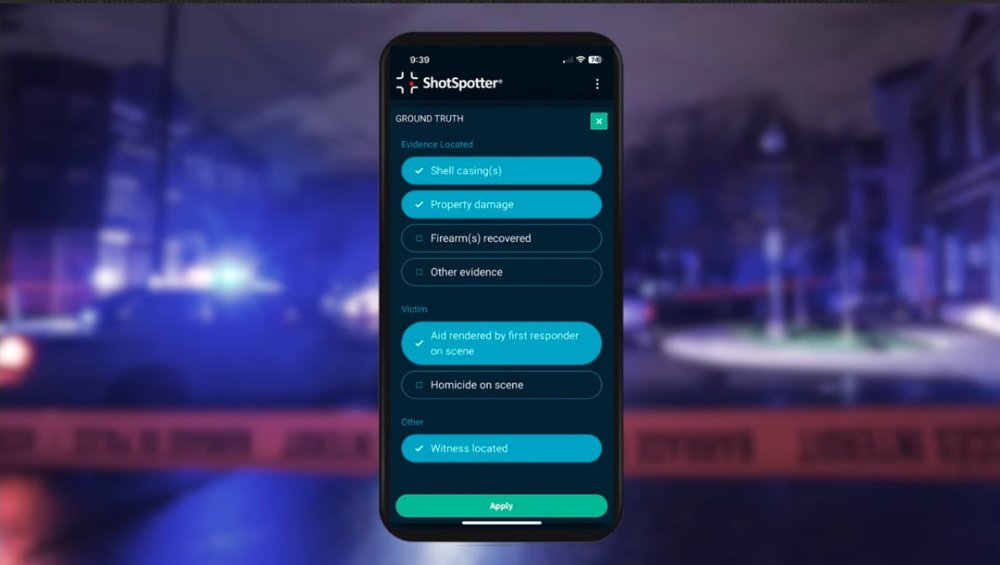ShotSpotter — like a persistent door-to-door salesman — keeps coming back to pitch Seattle. In his proposed budget, Mayor Bruce Harrell included a $1.8 million surveillance pilot centered on the controversial gunshot-location-detection system.
This is the third time that Harrell has backed ShotSpotter technology. The first time was in 2013. As a councilmember at the time, I recall attending the Public Safety Committee along with Harrell and committee chair Nick Licata when the SpotSpotter sales team arrived to sell the system. Although Harrell favored spending the $250,000 it would have cost to monitor one sector of the city, the city council voted against funding.
Not to be deterred, Harrell again proposed the system in last year’s mayoral budget; but the council again spurned the idea. Budget chair Teresa Mosqueda cited a scathing report from Chicago’s Office of Inspector General. A two-year study discovered the system had sent police on false alarms more than 40,000 times. Mosqueda said the council should instead prioritize programs that would house and feed people.
Mosqueda’s concerns were echoed by Kendrick Washington, policy director of the ACLU of Washington, who highlighted the experience of cities that had found gunshot sensors “did little to prevent crime” but tended to chill speech, threaten privacy, and “waste public safety resources.” Cathie Willmore of the nonprofit Seattle Neighborhood Group alleged ShotSpotter technology is both unreliable and damaging to communities of color.
Yet today the much-debated system is deployed by about 100 U.S. cities including New York City and Chicago. It works this way: ShotSpotter mounts sensors the size of a toaster on lampposts and rooftops in a 3-5 square mile coverage area, using two dozen per square mile. Acoustical software from the sensors send clips to an incident review center for analysis. Alerts are then relayed to the relevant law enforcement agency within 30-40 seconds, sending police to a location to find victims, collect evidence, and talk to witnesses.
Using technology developed in 1997 by Stanford University’s Dr. Robert Showen, ShotSpotter is run out of California; CEO Ralph Clark resides in Seattle’s Central District. He claims the system offers a way forward, “helps save lives, solves more crime, and restores trust with the city.” Clark points to Minneapolis’ experience, saying “They’ve had it since (2010) and used the right way it’s incredibly transformative.” (Records show Clark personally donated $535 to Harrell’s unsuccessful 2013 mayoral campaign.)
ShotSpotter makes many claims of accuracy and operates as a subscription service using algorithm-based listening devices assisted by artificial intelligence. Several cities have tried and dropped ShotSpotter including San Antonio, Charlotte, Dayton, and Trenton, N.J. Atlanta police rejected ShotSpotter after the company gave the city a six-month free trial. In Albuquerque the police union president called the $3 million spent on the system “a big fat waste of dollars.”
Closer to home, Portland has had a rocky experience over possible adoption of the technology. ShotSpotter personnel developed ties with the Portland Police Bureau leaders and arranged for them to visit Tampa to see the system in action. Subsequently, Portland elections officer Becky Lamboley found “clear evidence” that meetings with the bureau leaders fell within the definition of lobbying.
Claims that SpotShotter or any similar system (there are several) could “prevent crime” is problematic since it’s impossible to count instances of what didn’t occur. However, it’s true Seattle has experienced reports of random gunshots that conceivably could have been pinpointed by a detection service. Households along the Aurora Avenue North corridor recently complained of losing sleep over the rise in middle-of-the-night gunshots. Residents of the Broadview area are calling for increased police patrols.
Following presentation of Harrell’s budget, mayoral spokesperson Jamie Housen issued remarks defending the plan which combines SpotSpotter with CCTV cameras and license plate readers. Housen said technology “would serve to deter gun violence and be an efficient use of resources at a time of low staffing of the police department.” He said the mayor’s pilot initially would be temporary and would focus on “areas with heightened concentration of gun violence, human trafficking, and other crimes.” Housen issued assurances it would only monitor public places such as sidewalks, streets, and parks” and evidence would automatically be erased in 30 days.
Whether the city council will include the controversial plan as a midterm adjustment to the 2023-2024 biennial budget is undecided. Public Safety chair Lisa Herbold seems tepid, saying “the surveillance package is not the best use of the city’s resources.” She first prioritizes mental health resources for crisis responders, a Seattle Community Safety Initiative hub in Northgate, and adding Spanish-speaking staff in South Seattle. Councilmember Sara Nelson, however, has been more responsive to the ShotSpotter technology likening it to “one more tool” and allowing that it’s hard to fault a system that “could save even one life.”
Councilmembers will begin considering amendments to Harrell’s proposed budget beginning Wednesday, Oct. 18. The $1.8 million surveillance pilot doesn’t loom large when looking at the city’s $7.4-billion budget. However, given the city’s many pressing needs and its tight budget, the ShotSpotter proposal is once again guaranteed to raise a storm of pro and con arguments.

Teresa Mosqueda’s and Lisa Hebold’s knee-jerk negativity to any kind of enhanced policing is getting harder and harder to take. If they could propose an alternative that would help stem the horrifying rise in violence, it would be easier to understand. But they never do, do they? It’s just spend more, more, more on social services. And of course–More interpreters. AS IF! that will do one damn thing to stem the dismaying rise of murders in Seattle. Why does no one ever call on those two to justify their proposed expenditures on worthless programs? At some point, will they say, enough? We need to make Seattle safe again. I’m with Sara Nelson on this one.